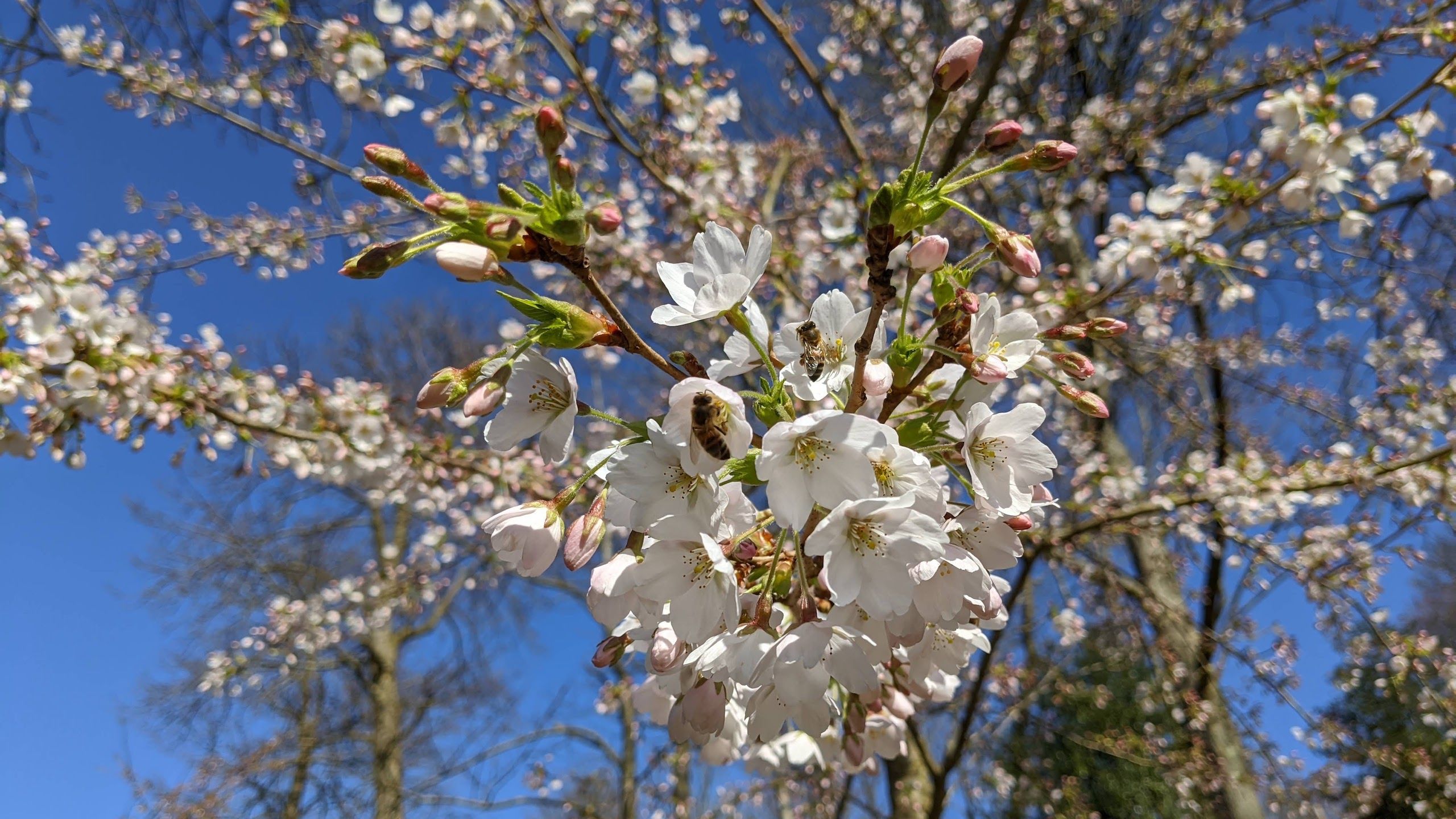
Jobs to do in March
A tricky month March, the weather can be so fickle.
"A peck of March dust is worth a king's ransom."
"So many misties in March,
So many frosties in May."
"March comes in like a lion, goes out like a lamb."
Pots of spring colour are the order of the day to brighten up windowsills, door steps, patio and conservatories.
Use your nose, have scent around the house – many Primroses especially the yellow varieties have a delicate fragrance and many of the dwarf Narcissus the same. Bring winter stems into the house too, stems of Willow – Pussy Willow, dogwood Cornus alba, Mid-winter fire, catkins of Hazel even silver birch and don’t forget the flowering stems of early plums.
Float single flowers in a saucer or soup bowl – Camellias, hellebores, Primrose, replace after a few days, they are guaranteed to brighten up any table and are a great talking point!
Jobs to do:-
Have a good tidy up and remove weeds before mulching the borders with compost. Weeds are a lot easier to remove before everything else grows around them, clear from paths and anywhere you see them before they flower and seed!!
Slug control and prevention – Slug Gone from Vitax is made from sheeps wool, it doesn’t kill slugs but discourages them as the wool dries their slime and is abrasive.
Sluggo from Neudorff is based on iron phosphate and is safe to use in an organic gardening, safe for children/grandchildren, pets, animals, birds and hedgehogs! The slugs die underground and it kills snails as well.
Sluggo Slug and Snail killer, Slug Gone and Nemasys Slug Control are the only products I will use in my own garden. Please read the application rates!
Prepare vegetable beds after the wet winter – Weed first , dig over loosely to get air into the ground then cover with compost/organic matter, let the worms pull it down into the soil. Prepare a trench for climbing or runner beans. Runner/Climbing beans dislike a windy position and love sunshine, they need fertile, well-drained soil that the roots can freely grow in. Dig a trench removing soil to one side, fork the bottom of the trench, place a layer of newspaper and back fill with compost or manure mix, then the soil on top, producing a raised trench ready for sowing or planting out in May or June. Use strong bean poles or canes and tie together securely and brace to stop wind rock. Pinch out beans when they reach the top of your supports.
Seed Sowing – Lettuce/salad. Sow every 2-3 weeks in small numbers to stop the glut of lettuce, little and often is better as it will allow a continuous supply throughout the season. Do the same with the micro leaves, they are all the rage! Decide on your varieties, use a good compost, if you can bring it into the house or conservatory to dry out and warm up first, that really helps as cold, wet compost is horrible to work with and no good for seedlings either!
Use clean seed trays or inserts, using labels to name your babies! Fill each tray to just below the top of lip, lift the tray an inch off the table keeping it level and then let go, this will settle the compost properly into the tray, top up any gaps if necessary.
Lettuce and salad seeds need to be fresh, they do not keep from year to year, once opened you can store the packets in the fridge to keep fresh.
Sprinkle your seeds, not too thickly 5-10mm apart on the surface – DO NOT COVER lettuce or salad seed with compost, they need light to germinate. Water very gently using either a hand water sprayer or place the seed tray in a water bath so the water comes up through the compost and draws the seeds down to the soil. Leave for 5 mins lift out and drain any excess water off. Cover with a propagator or Perspex lid and hopefully you should see baby plants germinating within 4-5 days.
Sweet Peas – It’s not too late to sow sweet peas, a must in any garden. I sow into root trainers which can be found in most garden centres or on-line, they are a great investment for growing peas and beans too.
Look at my videos for seed sowing Lettuce, Peas, Beans and Sweet Peas in Root trainers.
Seed sowing has to be one of the most satisfying jobs to sow seeds, watching them germinate and grow. I never stop getting excited when this miracle of nature happens!
Herbaceous Plants – Lift and divide large clumps of hostas, phlox, aster, inula, rudbeckia, lysimachia….. etc. The best plants to keep come from the ones on the outside of the clump, discard the middle of the clump. Split the remaining plants into clumps the size of your hand and replant around the garden or pass onto family and friends. There are lots of tempting herbaceous plants in garden centres and very good value as small plants at the moment.
Other items to consider are seed potatoes, shallots, onion sets, garlic, Lillies, dahlias, wildflower plants, Roses, fruit trees and bushes, spring bulbs, shrubs and trees, Primroses and Pansies and so the list goes on……..
If you are able to cut your grass then please raise the cutting deck to 2”, do not scalp the lawn at this time of year.
Fleece peaches and nectarines to protect flower buds from frost, even a cotton sheet or net curtain draped over the tree held in place with clothes pegs will hold off a hard frost.
Depending which part of the country you are in here are some other vegetable seeds you can sow, most will need starting off with protection, under cloches, indoors in a propagator or direct sown into the ground. Read the instructions on the packet.
Globe Artichoke
Broad Bean
Beetroot
Sprouting Broccoli
Brussel sprouts
Cabbage Summer/Autumn
Calabrese
Cauliflower Summer/Autumn
Kohlrabi
Komatsuna and Rocket
Mizuna, mibuna and mustard
Swede and Turnip
Carrot
Celeriac
Celery
Chicory, endive and radicchio
Leeks
Lettuce
Peas
Pepper, chilli, aubergine
Radish
Salsify and scorzonera
Seakale
Spinach – Annual
Swiss Chard and leafbeat
Tomato
If the ground is too cold and wet, DO NOT waste expensive seed by sowing, better to wait. Invest in a soil thermometer!
Places to go:-
Please visit gardens open under the National Garden Scheme (NGS) Yellow book, (www.ngs.org.uk) lots of Spring gardens with snowdrops, crocus, narcissus, hellebores etc.
Happy Gardening.
Kind regards
Peter Mills















